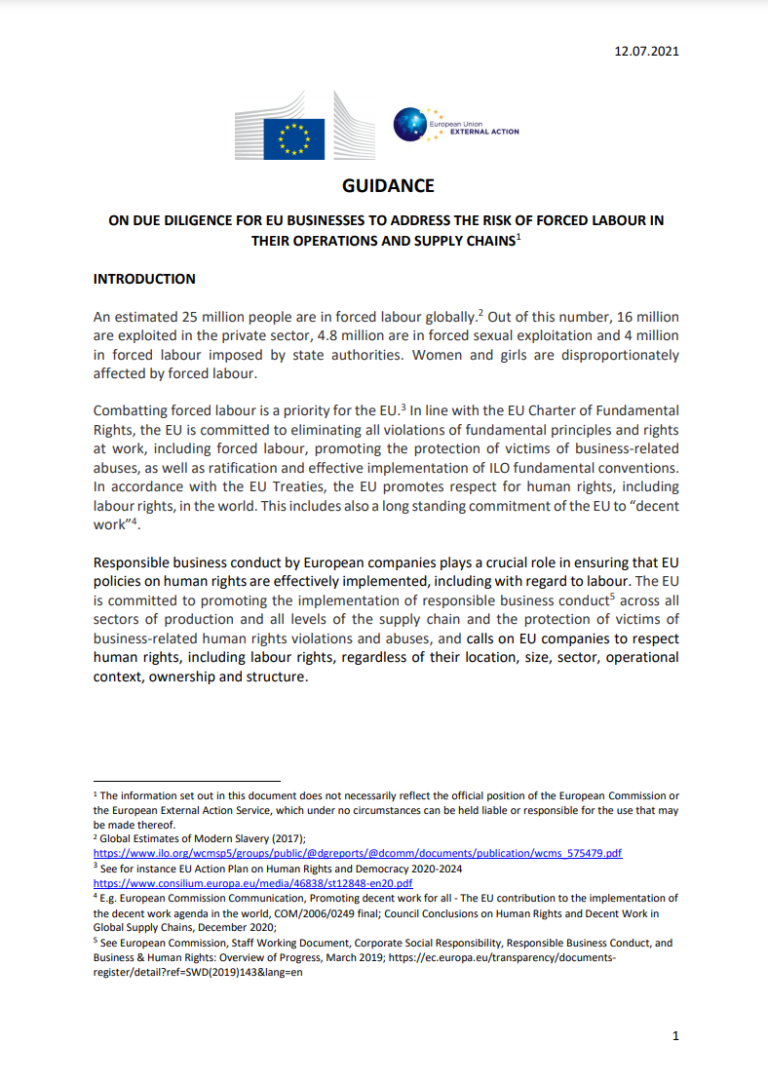Responsible business conduct by European companies plays a crucial role in ensuring that EU policies on human rights are effectively implemented, including with regard to labour. The EU is committed to promoting the implementation of responsible business conduct across all sectors of production and all levels of the supply chain and the protection of victims of business-related human rights violations and abuses, and calls on EU companies to respect human rights, including labour rights, regardless of their location, size, sector, operational context, ownership and structure.
This document is intended to provide European companies with practical guidance to implement effective human rights due diligence practices to address the risk of forced labour in their supply chains. In particular, the guidance explains the practical aspects of due diligence and provides an overview of international standards on responsible business conduct and due diligence that are relevant for combatting forced labour.

